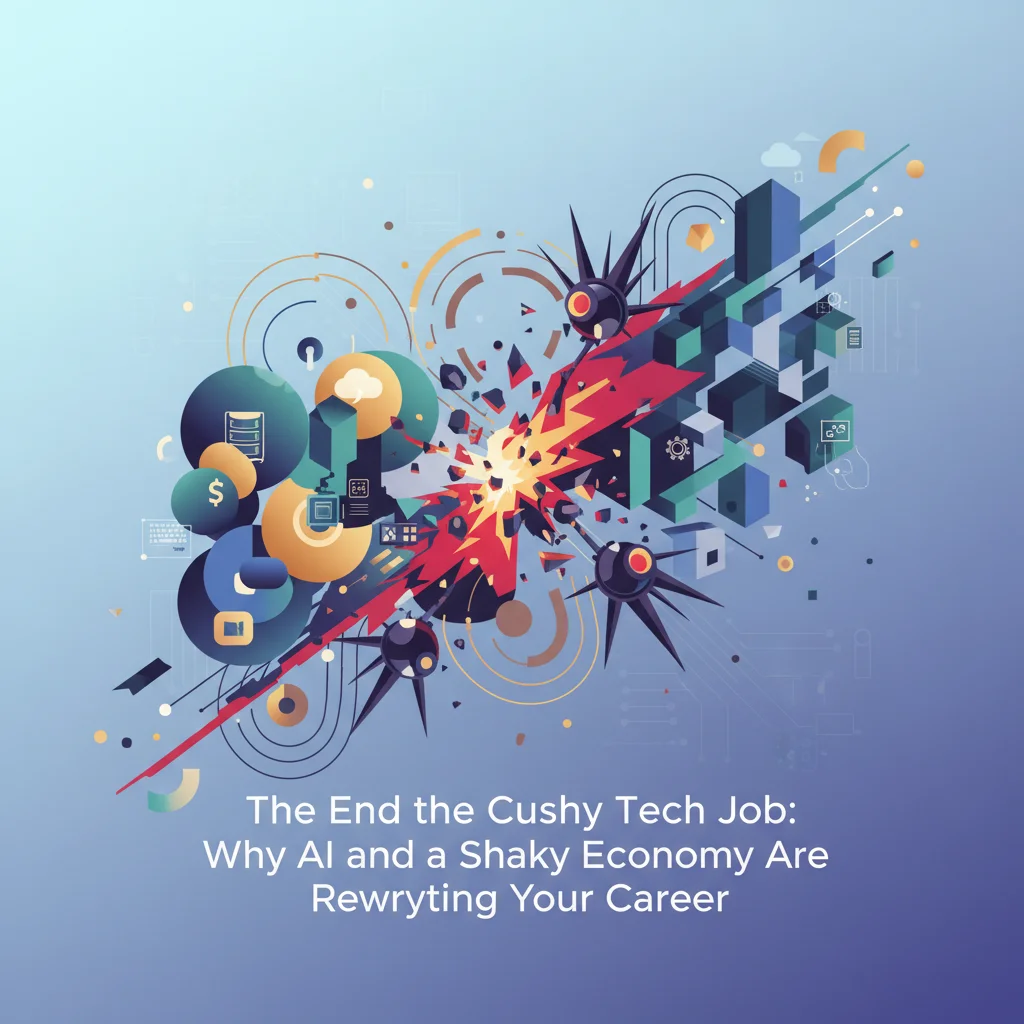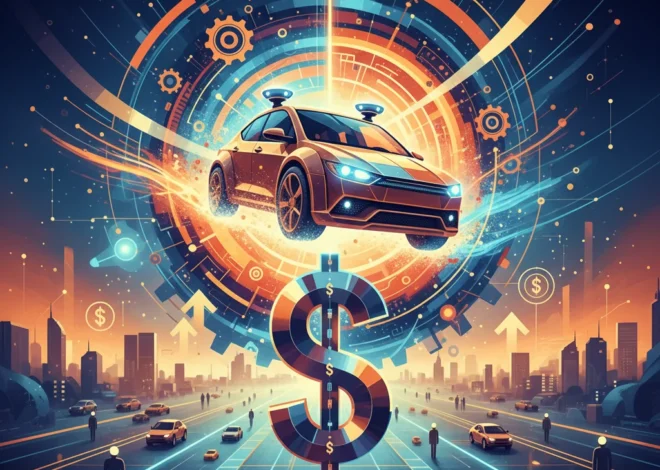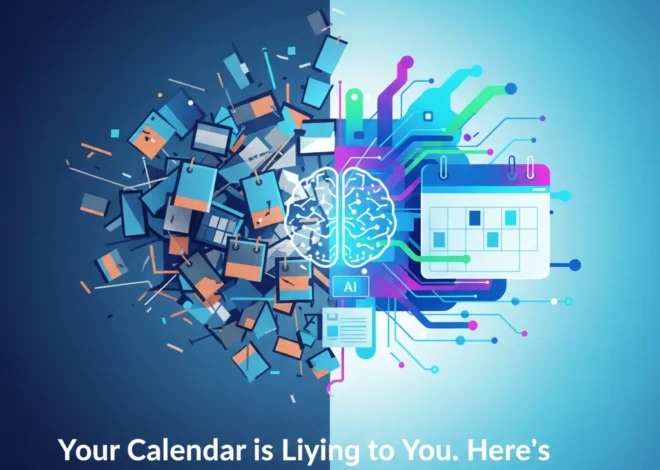
The End of the Cushy Tech Job: Why AI and a Shaky Economy Are Rewriting Your Career
Remember 2021? The tech industry was on an unstoppable hiring spree. Six-figure salaries, lavish perks, and the promise of lifelong job security for skilled “knowledge workers” seemed like the new normal. If you could write code, manage a product, or market a SaaS platform, you had a golden ticket.
Fast-forward to today, and the landscape looks dramatically different. A wave of layoffs has swept through the industry, from giants like Google and Amazon to promising startups. That once-unshakeable sense of security has evaporated, leaving many tech professionals wondering: What just happened? And more importantly, what’s next?
The answer is a perfect storm. The era of cheap money and growth-at-all-costs is over, replaced by a relentless focus on efficiency and profitability. But this isn’t just another economic downturn. There’s a new, powerful force at play reshaping the very nature of work: artificial intelligence.
This isn’t just about economic cycles; it’s a fundamental shift. The very jobs that were once considered the safest—those requiring intellect, creativity, and complex problem-solving—are now at the epicenter of a revolution. In this post, we’ll dissect the forces dismantling the old career ladder and provide a new playbook for not just surviving, but thriving in this new era.
The Great Correction: From “Growth at All Costs” to “Productivity at All Costs”
The post-pandemic tech boom was fueled by near-zero interest rates and a surge in digital demand. Companies expanded their ranks at a breakneck pace, often hoarding talent to starve competitors. But as inflation soared and central banks hiked interest rates, the music stopped. Investors, once obsessed with user growth, are now demanding profitability.
This has led to what many are calling the “Great Correction.” The fat has to be trimmed, and middle management and high-earning operational roles are often the first on the chopping block. According to the Financial Times, the recent cuts signal a definitive end to the era of job security for these knowledge workers. The pressure is on to justify every single role in terms of direct value and efficiency.
To put the scale of this shift into perspective, let’s look at the numbers from some of the industry’s biggest players over the past year or so.
| Company | Approximate Number of Employees Laid Off | Key Areas Affected |
|---|---|---|
| Google (Alphabet) | Over 12,000 | Recruiting, Engineering, Product, various departments |
| Amazon | Over 27,000 | AWS (Cloud), HR, Retail, Devices |
| Microsoft | Over 10,000 | Gaming (Activision Blizzard), Engineering, Cloud |
| Salesforce | Over 8,000 | Sales, Marketing, various departments |
| Meta | Over 21,000 | Recruiting, Business teams, Reality Labs |
This isn’t just about bloated headcounts. It’s a strategic pivot. Companies are reallocating capital away from yesterday’s priorities and pouring it into the single biggest technological shift of our generation: AI.
The Automation Paradox: Deconstructing the AWS Outage That Shook the Internet
The Elephant in the Server Room: How AI is Reshaping the Workforce
While economic tightening lit the fire, artificial intelligence is pouring gasoline on it. Generative AI tools like ChatGPT, GitHub Copilot, and Midjourney are no longer novelties; they are powerful productivity engines being integrated into every facet of business.
For decades, the fear of automation was focused on blue-collar, manual labor jobs. The consensus was that “knowledge work” was safe. That assumption is now obsolete. The new wave of machine learning models can write code, draft legal documents, create marketing campaigns, and even help with complex strategic analysis. This has profound implications for a wide range of roles:
- Programming & Software Development: AI assistants can now write boilerplate code, debug complex issues, and even suggest architectural improvements. A single developer can now accomplish what once took a small team, changing the calculus for how many engineers a company needs. The focus is shifting from writing lines of code to high-level system design and AI integration.
- Marketing & Content Creation: From generating blog posts and social media copy to creating entire ad campaigns, AI is a massive force multiplier. This impacts content creators, copywriters, and marketing strategists, who must now become expert curators and editors of AI-generated content.
- Data Analysis & Business Intelligence: AI can sift through massive datasets, identify trends, and generate reports in seconds. This augments the role of data analysts, pushing them towards interpreting AI-driven insights and making strategic recommendations rather than just crunching numbers.
- Cybersecurity: AI is a double-edged sword here. While it can be used to power more sophisticated cyberattacks, it’s also becoming an essential tool for threat detection, analyzing network traffic, and automating incident response, changing the skill set required for cybersecurity professionals.
Companies are realizing they can achieve the same, or even greater, output with a leaner, more AI-savvy workforce. As one executive quoted by the FT bluntly put it, some companies found they had hired people who were “epically unproductive“. Now, AI offers a way to supercharge the productive employees and automate the work of the rest.
The most sought-after professionals of the next decade won’t be the best coders; they will be the best “AI Orchestrators.” They’ll be the ones who can ask the right questions, chain together different AI tools, validate the output, and integrate it into a larger business strategy. The premium is shifting from tactical execution to strategic oversight. This is a massive opportunity for startups building the next generation of SaaS tools that facilitate this human-AI collaboration and for individuals who are willing to evolve beyond their current job description. The future isn’t human vs. machine; it’s the AI-augmented human vs. the un-augmented human.
Your New Career Playbook: How to Thrive in the Age of AI
The fear and uncertainty are real, but so is the opportunity. This disruption is clearing the way for a new class of leaders, builders, and innovators. Survival and success now depend on a proactive, strategic approach to your career. Here’s the new playbook.
For Developers and Tech Professionals: Become an AI Power User
Your goal is no longer to be the best coder; it’s to be the most effective problem-solver, using AI as your primary tool.
- Master the Tools: Go beyond just using ChatGPT for simple questions. Deeply integrate tools like GitHub Copilot into your workflow. Learn prompt engineering. Understand the strengths and weaknesses of different LLMs.
- Move Up the Stack: Focus on skills that AI can’t easily replicate. This includes complex system architecture, strategic product vision, advanced cybersecurity protocols, and leading cross-functional teams.
- Embrace Full-Stack Thinking: Don’t just be a front-end or back-end developer. Understand the entire product lifecycle, from ideation and business goals to deployment and user feedback. Your value is in connecting the dots.
For Entrepreneurs and Startups: Build the Shovels for the Gold Rush
Every major technological shift creates a new ecosystem of tools and platforms. The AI revolution is no different.
- Solve Integration Problems: The biggest challenge for large companies is not accessing AI, but integrating it into their legacy workflows. Build the SaaS and cloud-based platforms that bridge this gap.
- Focus on Niche AI Applications: Instead of building a general-purpose AI, create highly-trained models that solve specific industry problems—AI for legal contract review, AI for pharmaceutical research, AI for supply chain optimization.
- Innovate with Lean Teams: Use AI internally to operate with extreme efficiency. A small, highly-skilled team augmented by powerful automation can now compete with established giants, creating unprecedented opportunities for innovation.
The Pardon That Shook the Tech World: Analyzing the Ripple Effects of Trump's Pardon of Binance's CZ
A Tale of Two Futures: Disruption or Renaissance?
It’s easy to view this moment through a dystopian lens: mass unemployment, soaring inequality, and a world where human creativity is devalued. This is a real risk, and one we must navigate with thoughtful policy and ethical considerations.
However, there is another, more optimistic future. Throughout history, every wave of technological automation—from the printing press to the internet—has caused short-term disruption but ultimately led to long-term prosperity and the creation of entirely new industries and jobs we couldn’t have imagined. A staggering 60% of people today are in occupations that did not exist in 1940.
AI could be the ultimate tool for human augmentation, freeing us from repetitive and tedious tasks to focus on what we do best: strategic thinking, deep empathy, complex problem-solving, and true creativity. It could usher in an era of unprecedented scientific discovery, artistic expression, and entrepreneurial innovation.
Which future we get is not predetermined. It depends on the choices we make now—as individuals, as companies, and as a society.
The Pardon That Shook Silicon Valley: What Trump's Clemency for CZ Means for the Future of Tech
The comfortable, predictable career path of the last decade is gone. The stability we once found in a specific role or a big company name must now be found within ourselves—in our ability to adapt, to learn continuously, and to embrace the very tools that are causing this disruption. The tectonic plates of the global economy and technology are shifting beneath our feet. The question is, will you be crushed by the change, or will you ride the wave to build something new?


